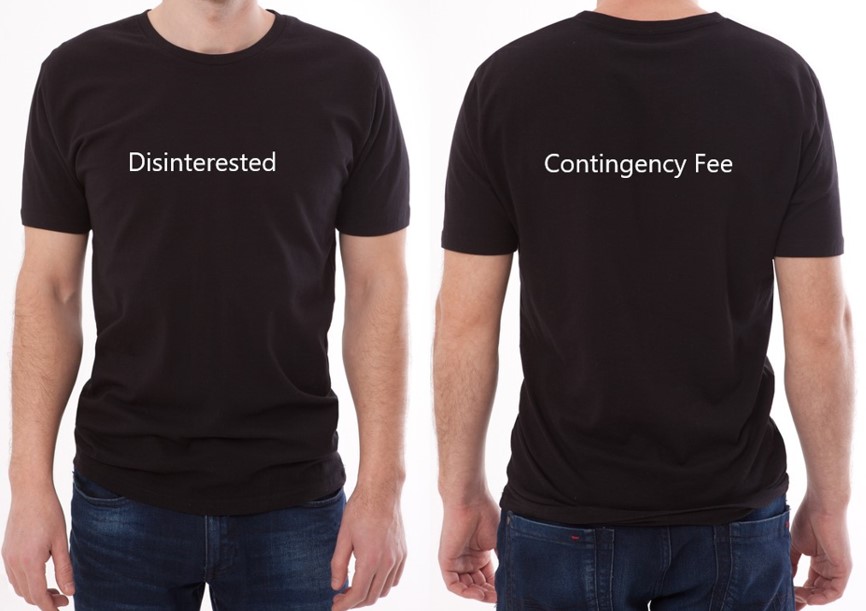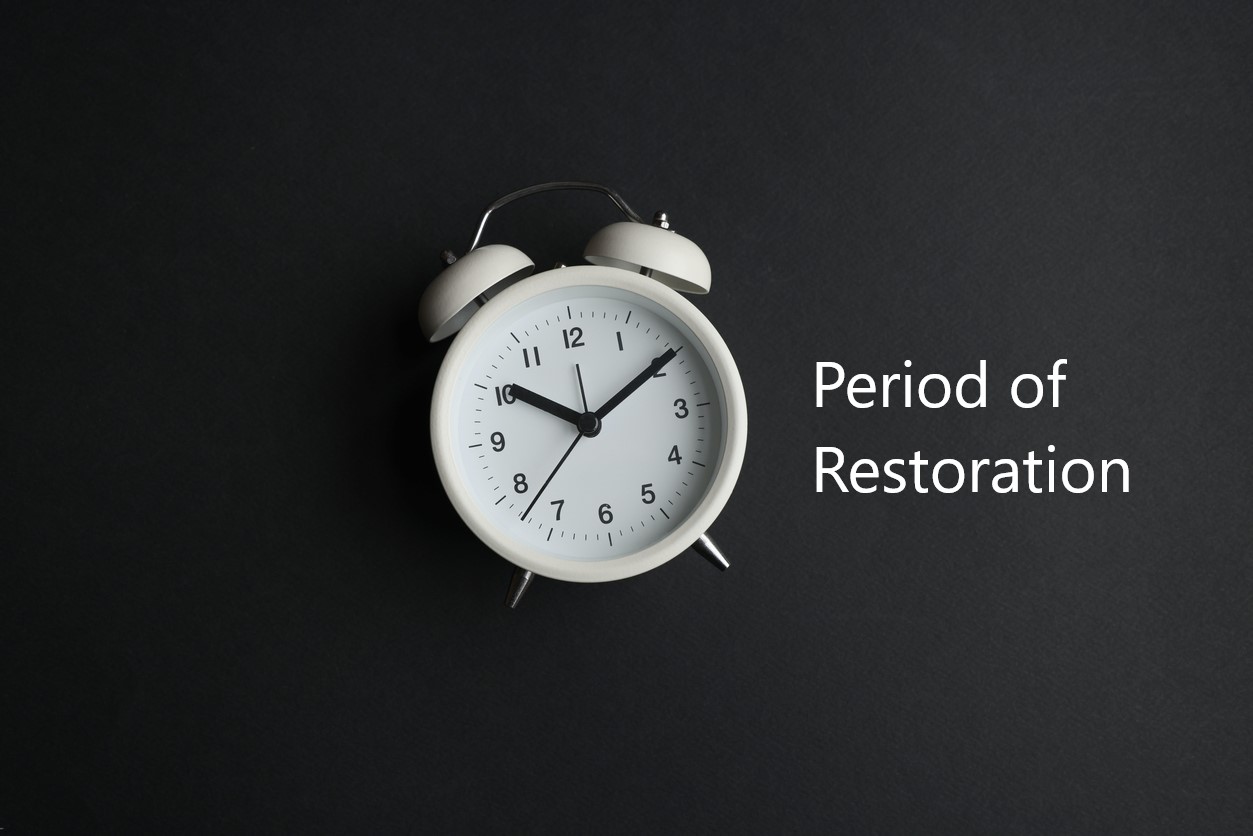The appointment of umpires by judges is something that I have been following. When I teach appraisal classes or debate appraisal issues with Steve Badger, I often state that the selection of an umpire is most crucial to parties wishing to have a fair outcome. As stated in Judge Cites Merlin Law Group in Appointment of Umpire:
When it comes to appraisals, both sides have an obligation to make certain that the insurance customer is not caught in gamesmanship, which leads to being paid less than the full amount owed. I feigned being knocked over when Steve Badger agreed with this statement at The Great Debate: The Rematch – A Clash of Titans Over Hail & Appraisal. Ethical property insurance claims managers also agree with this concept.
Similarly, it would be wrong to subject the insurer to a situation where ‘the fix is in’ and the award is not supported by legitimate facts and valuations. The umpire who commands respect and makes the process fair is an extremely important participant in ensuring that the appraisal process continues to have legitimacy for both parties.
Based on a number of written decisions by judges who have selected umpires, I have been suggesting in my presentations at the IAUA and PLAN appraisal classes that all appraisers and umpires should keep a list of every case where they have been selected and appointed. Judges will often look at these experiences to determine if the person is being appointed only on the policyholder or insurance company side. The judge may also want to know if other judges have appointed those nominated as umpires.
If the appraisers cannot agree and a judge must appoint an umpire, it is important to know what credentials and experience a judge might look for. For that reason, I read orders and opinions to learn who judges tend to appoint, and I look into their qualifications. A recent Texas federal court made such a decision without explaining the rationale for doing so in a residential loss dispute. 1
The insurance company’s appointed appraiser is an industry professional, Gene Kounse. The policyholder’s appraiser is Eric Ramirez. His website lists a unique view to the question of “What is The Appraisal Process?”:
This has been the secret weapon of Public Insurance Adjusters and Attorneys. I’ve performed over 500 appraisals for attorneys throughout Texas holding ‘high standards’ in the Construction Industry, Occupational Safety and Health Administration (OSHA), Master Builder with w/the National Association of Home Builders, a Residential Building Inspector w/the International Code Council, over 95% end up in front of an Umpire as many are qualified, but failed to implement their own standards.
In many cases, the court will force both parties to enter into the Appraisal Process (binding) to comply with the terms of the policy agreement before entering mediation (non-binding), and in other states such as Florida, mediation may be accepted, and the insurer bears all expenses. For the late bloomer attorneys, most spin their heads stuck getting the go around in mediation with $7,000-15,000 offers from the carrier, then later find that working with a Public Insurance Adjuster, we are known to increase settlements, mostly due to lack of supporting documents, thorough inspection, detail estimating, depreciation and placing a proper value on the damages for a fair market amount.
During my practice in Texas, the majority of the Judges and Attorneys who were Court Appointed Umpires were familiar with construction and even had their own personal experiences as Houston is prone to natural disasters, but some were unfamiliar with the Umpire Process and their duties, treating this process as if it was mediation (Split the baby down the middle) or arbitration (Offers on the table, who is going to take it?), this is not determining the actual amount of loss and is unfair to the insured and insurer offering substantially less, taking away what has already been agreed, over depreciating, etc., when both appraisers are to separate their differences and submit their differences to the umpire and an award should be based what has been paid and our differences.
On many occasions, appraiser lockup/lack of communication, preferred vendors’ estimate games when they are qualified to write an estimate, biased engineers’ reports, causation or coverage or limit of liability issues, inexperience with a Court-Appointed Umpire, what happens when all parties come to an impasse, appraisals get set aside—this can be challenging for the novice.
We have been in the insurance dispute industry for over 10 years and have noticed that Insurance Companies/Defendants’ Councils normally invoke Appraisals. Around 2015, we saw the tables turn, and many Plaintiffs’ Councils were invoking the Appraisal Process as they started believing in the system.
It should be noted that the policyholder was representing herself in the appointment of an appraiser and during the proceedings of an umpire appointment. I am not certain if the judge looked at the background of the two appraisers before appointing the umpire. The judge asked each side to present a list of candidate umpires, and each party supplied CVs for the selection.
The insurance company listed several insurance veterans who were familiar with appraisals. One of them, James “Randy” LeBlanc of All-Star Adjusters, had an impressive resume, which included the certification as a CPAU from the IAUA. His resume listed 1700 appraisals from 2015 to 2021 and listed “3500+ Performed” under the heading, Umpire from 2010-Present. There are approximately 260 working days a year before taking vacations. Six years allows 1560 working days. Randy did an amazing 1.08 appraisals per working day from 2015-2021, not including his massive amount of umpire work, continuing education, expert witness work, and adjusting. Randy LeBlanc is a hard-working man.
The pro se policyholder filed resumes, which included three judges, two experienced claims adjusters, and one building inspector, Bryon A. Parffrey. Parggrey’s resume is one of the most thorough I have ever read. His website notes:
Bryon Parffrey is the owner and operator of the Builder’s Academy, an institution responsible for training and certification of home and commercial inspectors. Bryon has been training professional inspectors and builders for over 35 years and currently authors books on the latest techniques in home inspections and building. Bryon Parffrey starred in his own home building show on talk radio and is known throughout the home building community as the leader of home building education.
Nothing in Parffrey’s resume indicated that he had ever been in an insurance appraisal or that he had any education regarding insurance appraisals. He seems to be an accomplished residential and commercial building inspector who has been on the radio for over 20 years, and he oversees a school that teaches people how to have a career as a building inspector.
The judge appointed Parffrey. I can only speculate as to why. However, Parffrey’s credentials do not demonstrate any previous bias working for policyholders or insurance companies. His background is not in adjustment or insurance appraisal. In this case, maybe that is what the court was looking for—a person with a lifetime of credentialed building inspection experience and no known or advertised experience seemingly favoring one party or another.
Thought For The Day
As a leader, you have to not only do the right thing but be perceived to be doing the right thing. A consequence of seeking a leadership position is being put under intense public scrutiny, being held to high standards, and enhancing a reputation that is constantly under threat.
—Jeffrey Sonnenfeld and Andrew Ward
1 Baldwin v. Homesite Ins. Co., No. 4:23-CV-00859 (S.D. Tex. Aug. 28, 2024).





